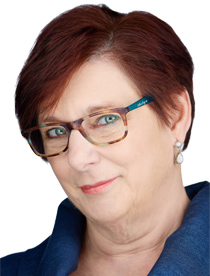
Faith
Having a holy day of obligation fall on a weekday may well be inconvenient. But it also serves to emphasize the value of whatever the day signifies. What's important about the Ascension is that it is the culmination of the entire life of Christ.

Wolfe
There are feasts, and then there are Feasts-with-a-capital-F. Everyone puts Christmas and Easter into the high holy days category, and practically nobody puts the Ascension there. But they should.
Whenever we observe it, the Ascension is a Solemnity of the Lord -- one of a handful designated throughout the year. There aren't many U.S. dioceses that have chosen to keep the traditional date of Ascension Thursday 40 days after Easter. Only those in Massachusetts, New Hampshire, Maine, Connecticut, Rhode Island, New York, Vermont, Newark, New Jersey, and the state of Nebraska (there's always an outlier, right?) All the rest transfer Ascension Thursday to the following Sunday. It sounds strange when you put it that way, doesn't it? But it also makes me wonder if Ash Wednesday will ever be in danger of becoming "Ash Sunday." That prospect just doesn't seem right! Before New Englanders start gloating, however, it might be good to remember that the traditional day for Corpus Christi was also a Thursday, as it still is in most of Europe. And, while we all keep singing about the 12 days of Christmas, the traditional Jan. 6 date of Epiphany has disappeared in the U.S.
Having a holy day of obligation fall on a weekday may well be inconvenient. But it also serves to emphasize the value of whatever the day signifies. What's important about the Ascension is that it is the culmination of the entire life of Christ. Beginning invisibly at the Annunciation, the promise of Christ is fulfilled as the Risen Lord ascends into heaven's glory. The Incarnation only makes sense if it ends at the right hand of the Father. The unity between God and humankind is forged in Christ to make it accessible to all of us.
Our story does not end here. Christ Jesus shows us that while his disciples must embrace the cross, his life is not swallowed up by death. The Holy Sepulcher is empty, but the Ascension teaches us an even deeper truth. Our eternal destiny has nothing to do with the grave. We were neither created for the tomb nor called to forever linger outside it. The Eternal Word did not become flesh haphazardly. Jesus of Nazareth entered human history with a singular purpose: to share divine life with us. Every soul was made for eternal life with God.
Jesus leads us into heaven. Christ does not merely restore to us what we lost through sin. He reconciles us fully in his person and by his blood. The victory over evil and death he won for us is what he now wants to share with us. There is so much more to following Jesus than living a good and holy life. Christ offers us an entirely new kind of life -- one that empowers complete transformation and prepares us for union with God. Every gift of beauty, goodness, and truth, and every sacramental grace is intended to bring us to the gates of our eternal home.
So many of us spend our earthly lives searching for "more." The transcendent restlessness of the human spirit tells us that what we see and know is not all there is. But the Son of Mary is also the Son of God. He does not merely show us the way to heaven, he himself is the way. Angels surround God's throne, but they do not sit upon it. Instead, one of us has gone ahead. The Son of Man prepares a place for us by taking his place at the right hand of God.
The Incarnation and the Ascension, then, are two sides of the same powerful truth: God wants us to be with him forever. In Christ, he came to walk with us so that we might walk with him. He came to earth so that we might come to heaven. And what is our response? The same as the disciples' who watched Jesus rise to heaven on a cloud. We look up at the sky in wonder.
- Jaymie Stuart Wolfe is a Catholic convert, wife, and mother of eight. Inspired by the spirituality of St. Francis de Sales, she is an author, speaker, and musician, and provides freelance editorial services to numerous publishers and authors as the principal of One More Basket. Find Jaymie on Facebook or follow her on Twitter @YouFeedThem.
Recent articles in the Faith & Family section
-
Did you know?Father Robert M. O'Grady
-
Sowing the Seeds of FaithMaureen Crowley Heil
-
Bread left overScott Hahn
-
Scripture Reflection for July 28, 2024, Seventeenth Sunday in Ordinary TimeJem Sullivan
-
What the universal call to holiness entailsDr. R. Jared Staudt


















